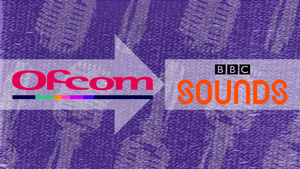UK media regulator OfCom has told the BBC to postpone the launch of a new golden oldies music service within the BBC Sounds app, a decision welcomed by commercial radio trade group Radiocentre.
The BBC proposed adding three new spin-off services, from its Radio 1, Radio 2 and Radio 3 stations, to BBC Sounds, with plans to later launch them as new digital radio stations on the DAB network.
OfCom has approved the Radio 1 and Radio 3 spin-offs, agreeing that they don’t represent a “material change” to the BBC’s output. However, the Radio 2 spin-off, featuring music from the 1950s to 1970s, requires a full public interest test before it can launch.
Radiocentre boss Matt Payton hailed the decision as “a significant shift”, noting that it is the first time OfCom has acknowledged “that an online-only BBC radio service” could significantly impact competition. He added, “Hopefully it signals a greater focus from OfCom on BBC accountability and market impact”.
The Radio 2 spin-off was particularly controversial, with Boom Radio, a commercial station playing music from the same era, urging its listeners to write letters to the BBC and their MPs opposing the plan.
Currently different rules apply when the BBC adds new services to BBC Sounds versus launching new DAB radio stations.
For BBC Sounds, the broadcaster must consider whether a new service constitutes a “material change” that could have “a significant adverse impact on fair and effective competition”. If OfCom disagrees with the BBC’s assessment then a public interest test is required.
With new DAB services, proposals go straight to a public interest test and are subject to other regulatory considerations at OfCom.
Commercial radio operators have criticised the BBC’s plans to add more genre-specific and era-focused music services to BBC Sounds, arguing that these directly compete with established commercial stations and their online services.
With 28% of radio listening now done via non-broadcast digital platforms, according to recent RAJAR figures, commercial radio companies are increasingly looking to monetise their digital offerings through subscriptions.
This issue previously came to a head in 2020 when the BBC added Radio 1 Dance to BBC Sounds. On that occasion Radiocentre unsuccessfully took legal action in the courts to challenge OfCom’s decision that the dance service did not constitute a material change.
Radio 1 Dance is also part of the BBC’s current plan to expand the number of DAB radio stations it operates. That expansion would include the dance service, alongside a Radio 1 spin-off playing music from the 2000s and 2010s, a Radio 3 “unwinding” service, and the Radio 2 oldies station. These proposed stations are currently undergoing regulatory review.

